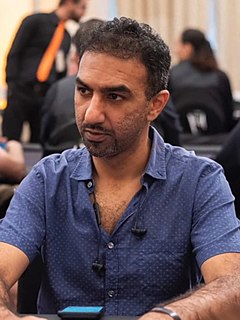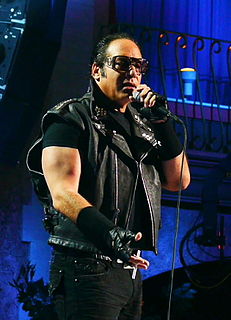A Quote by Eric Nam
It's easy to talk about how great love is or how you feel heartbroken after a breakup, but it's not as easy to talk about the process of going through the end of a relationship.
Quote Topics
Related Quotes
I am a conservative. I have said I don't know how many times, conservatism is an intellectual pursuit. And by that I mean liberalism's easy. Liberalism is the most gutless, easy choice. It's not even a choice. Liberalism is just, you feel it. And there's nothing hard about it at all. You don't even have to do anything. You just have to notice suffering and talk about how it. And you're a great, big-hearted, compassionate person.
I think that's a challenge as believers - how do you demonstrate the gospel? How do you do that? I mean it's easy to talk about it and say 'Oh this is what we are supposed to be doing' and this is the relevance. But how do you do that with your hands instead of your mouth? How do you do it every day, instead of just onstage, how is it enacted? And I feel like that is one of the ways that we can show what we believe, by how we treat people around the world.
Whether you talk about the olive oil, whether you talk about Aceto Balsamico, whether you talk about Grana Padano, whether you talk about Mozzarella di Bufala. These are all traditional Italian products that are hard to beat, and they're easy to transport and buy. You don't have to do much around it. Just eat them.
When I talk about how we're going to pay for education, how we're going to invest in infrastructure, how we're going to get the cost of prescription drugs down, and a lot of the other issues that people talk to me about all the time, I've made it very clear we are going where the money is. We are going to ask the wealthy and corporations to pay their fair share.
Marvin Gaye said there's a song inside of me and I can't get it out. And I know it's in there, and I can feel that it's in there, and I can't get it out. There's so much that I want to say, and I haven't been able to figure out how to say it in my art. I can only say it in ham-fisted, clumsy, nonpoetic ways, and I'm trying to figure out how to talk about life and talk about love and talk about pain and trials and tribulation in an artistic form.
I'm not like most comedians. I don't deal with just heckles - I'm also dealing with threats and anger. Here I am, a brown person on stage being quite blunt. I talk about white privilege; I talk about U.S. imperialistic practices; I talk about colonialism. I'm not saying things that are easy for people to laugh at.
I try to be aware of what I'm concerned about, aware of how I feel about myself in the world, aware of how I feel about the issues of the day, but I guess I don't want to write essays in my head about my craft and maybe it's because I teach and talk about craft of other writers as a reader. I feel the moment I start doing that is when it's going to kill me.
There are a lot of ways to talk about the life of a photograph. You can talk about the afterlife of a photograph, and in the end I talk about that, with the Richard Prince picture. But mainly, what I dedicated the book to being about was how photographs begin their life, and where they begin it. And they begin it with the photographer's imagination and instinct and experience.



































